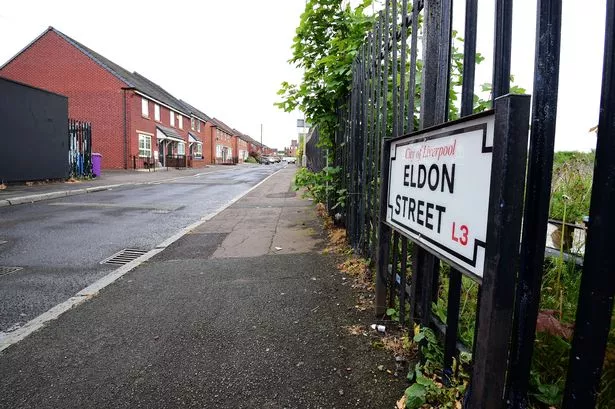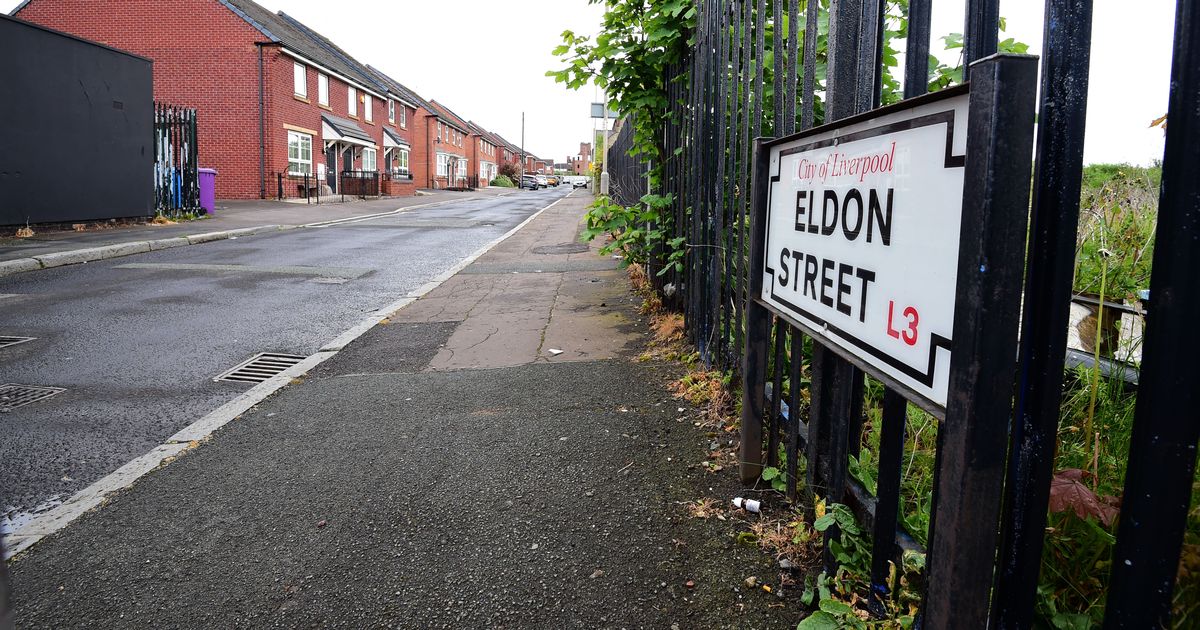Robert Evans was found dead at his home in 2022 after he had been detained by police officers five days earlier Robert Evans was stopped and searched on Eldon Street, Vauxhall(Image: Liverpool Echo)
Robert Evans was stopped and searched on Eldon Street, Vauxhall(Image: Liverpool Echo)
A man died days after he was subjected to a drugs search by police officers armed with batons who used “unreasonable force” and likely fractured several of his bones. Robert Evans, 59, was found dead at his Vauxhall home on July 3 2022 after he had been detained by police officers on Eldon Street five days earlier.
An inquest concluded in February this year with David Lewis, assistant coroner for Liverpool and Wirral, recording that Mr Evans’ died from a combination of drug use and underlying pneumonia. Mr Lewis also recorded that “fractures to his ribs, fibula and larynx contributed more than minimally to his death” due to the likely exacerbation of his pneumonia.
The coroner added: “It is more likely that these fractures resulted from force used by police officers when he was detained for the purpose of a drug search five days earlier. The force used was not reasonable and proportionate in the circumstances. The deceased declined offers of medical assistance, from officers and from his family.”
The ECHO previously reported how Merseyside Police referred itself to the Independent Office for Police Conduct (IOPC) due to the contact officers had with Mr Evans during the search, which was carried out under the Misuse of Drugs Act. Six officers faced allegations of potential gross misconduct and were also under a separate criminal probe for assault offences in relation to their use of force, while a seventh officer was also investigated for potential misconduct.
However, a spokesperson for the police watchdog later confirmed its investigation into the seven officers had ended without any further action being taken in relation to disciplinary or criminal matters. Following the culmination of the inquest, Mr Lewis sent a prevention of future deaths’ report to the College of Policing and National Police Chiefs’ Council (NPCC) regarding his concerns in relation to the events that preceded Mr Evans’ death.
The coroner raised concerns primarily around the lack of guidance given to the police to ensure someone suspected of swallowing drugs receives appropriate medical attention, instead of the likely actions of the officers who detained Mr Evans. The NPCC declined to comment. The ECHO has also approached the College of Policing and the IOPC. Merseyside Police told the ECHO the required action mentioned in the report is addressed to the NPCC and College of Policing.
 A general image of a Merseyside Police officer (Image: Merseyside Police)
A general image of a Merseyside Police officer (Image: Merseyside Police)
Mr Evans was detained after officers observed him conducting what they suspected to be a drug deal. He was detained in the street and was suspected by officers to have swallowed something which they believed might be drugs. Mr Evans denied it and nothing was found on an external search other than methadone which had been prescribed to his partner.
The inquest heard Mr Evans sustained a fractured fibula due to a blow from a police baton. He was asked if he wanted medical attention but said he did not. He was taken to a nearby police station and subjected to a strip search. Nothing was found again and he was taken back to his home address and left with members of his family.
Little more than an hour elapsed between the officers’ first and last contact with Mr Evans. The inquest heard a post mortem examination found a package of drugs in Mr Evans’ colon but could not establish whether it had been swallowed or inserted, at the time of detention or otherwise.
If you know anything more about this story, please contact the ECHO’s crime reporter at patrick.edrich@reachplc.com.
The court heard that College of Policing guidance for custody and detention officers states if officers know or suspect a detainee has swallowed or packaged drugs that they must be transferred to hospital. However, the inquest noted that if the suspect does not come to the attention of a custody or detention officer there is no guidance to assist officers in such a search and no powers to convoy somebody to hospital if it is against their wishes.
Mr Lewis recorded there is a material difference in how somebody suspected of swallowing a package is managed depending on whether an arrest has taken place or not. The inquest heard from officers who said any monitoring inevitably ends when an individual is released from detention, with officers not giving any advice to Mr Evans or his family about the need for further attention.
Mr Lewis said “there appears to be no guidance directed towards them as to what advice should be given”, with one officer telling the inquest there could no nothing said about the need to keep him under close because it would breach the individual’s right to privacy. The inquest found Mr Evans complained to his family of being in pain, for which he self-medicated but declined suggestions that he should seek medical advice.
Mr Lewis said: “I am concerned that a person detained for the purposes of a search under the Misuse of Drugs Act, who is then suspected of having swallowed drugs, might be exposed to a risk or death or other significant harm if they do not receive the sort of medical attention which the guidance to custody and detention officers considers an ‘urgent’ requirement, and/or if they are not given appropriate guidance on their release from detention. I am further concerned that officers are not given guidance or training in how to address this risk, by means of communication or otherwise.”
The coroner has asked for responses from the College of Policing and the NPCC by April 29 this year.
